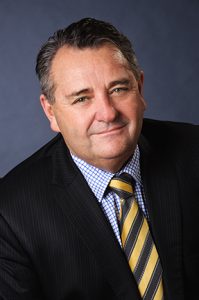- Paul Tynan
- October 3, 2016
- www.connectfsb.com.au
Connect Financial Service Brokers (Connect) CEO Paul Tynan has observed a disturbing and growing trend of mature age accountants and financial planners putting their businesses on the market in a last minute hope for a quick sale as the result of personal and financial health issues and then having to accept ‘fire sale’ prices for their lifetime of work and endeavour.
Commenting further, Paul Tynan said the occurrence of ill health has definitely been trending up over the past year especially with many practitioners holding on until their late 60s and 70s for a buyer and then being forced to sell as illness, medical issues or death take their toll.
“Never before have I seen so many buyers trying to sell at such short notice and retirement is the overwhelming reason for the sales,” said Paul Tynan.
“Depending on who you talk to, they will say (optimistically) it is either a buyer or sellers’ market at present. But the undeniable reality is that there is a Baby Boomer bubble of owners trying to sell their small businesses to the next generation but there are not enough Gen Y buyers interested”.
“However, businesses that have been structured on corporate client centric service and advice models with good processes, latest technology and adherence to the highest standards of compliance are always in demand and receive premium offers.”
Paul Tynan pointed to an accountant in his 70s that had been trying for many years to sell his business without success. Revenue was just under $1m annually with three staff and the principal.
Last month the accountant died suddenly resulting in the family losing the husband and father and the value of the business at great risk. The practice lost its key person, the staff members their jobs and the clients are seeking a new accountant to service their financial needs.
This is now becoming a common story within the accounting profession affirmed Paul Tynan.
Some experts will advocate staff buyout of these businesses as a solution. However, they fail to appreciate that the next generation of potential buyers working within the practice are struggling to service the burden of personal debt that includes the cost of their university education, home loan repayments, lifestyle related expenses and their own children to fund. As a result have no capacity left to entertain business ownership.
Nor do they see a future for a practice with an out-dated business model and an elderly client base they can’t relate to.
Paul Tynan continued, “Not all Baby Boomer business owners have been sitting on their hands and they have responded with business models attune to the new era of professionalism and provision of advice services in the 21st century. But there is definitely a significant sub set within this demographic with resistance to change firmly ingrained in their DNA and have been consistent reluctant adapters to modernise.
“When the reluctance to change and modernise is combined with an emergency exit the result is a succession planning disaster.”
The accounting and financial planning industry associations have struggled to communicate the importance and need to position practices for exit and succession. Breaking down the barriers and resistance to change is going to take an effort that goes beyond workshops and conferences to get the job done.
“We are now firmly in an era where change is the norm and it is only going to speed up and get faster and faster. How the government, industry professional associations and business owners cope with succession planning is open to many questions.”
“Perhaps a program as dramatic as the road safety commercials is the only means of shocking the recalcitrant planners and accountants into action,” concluded Paul Tynan.
Read the original article

